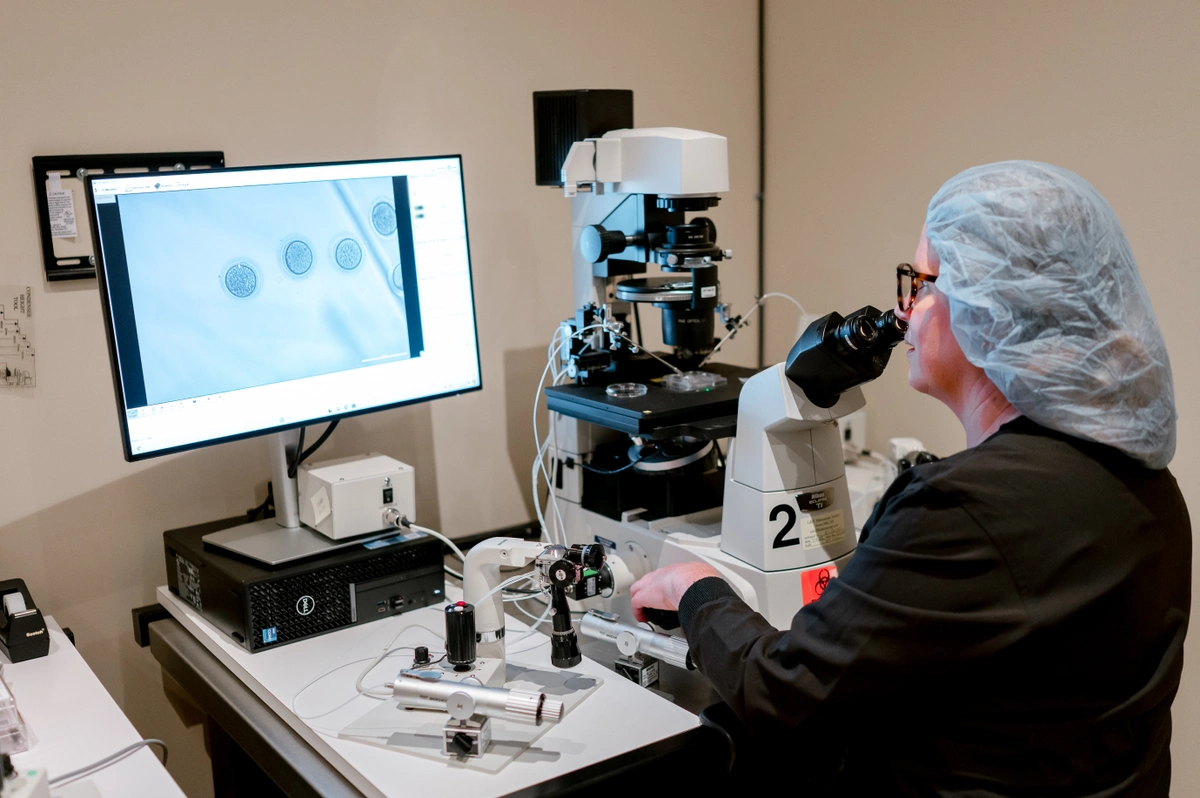
Understanding Fertility and the Factors that Impact It
On November 2, we celebrated World Fertility Day, a day dedicated to raising awareness about fertility health and supporting individuals and couples on their fertility journeys. Whether you're just beginning to explore your fertility or are already on a path to starting a family, understanding the basics of fertility is the first step. Fertility isn't just about reproduction—it's about overall health and well-being, and it's influenced by a wide range of factors for both men and women.
What is Fertility?
At its core, fertility refers to the ability to conceive and produce offspring. For women, fertility involves a complex interplay of the reproductive system, hormones, and the regular release of eggs during the menstrual cycle. For men, fertility revolves around healthy sperm production and their ability to fertilize an egg. Achieving pregnancy, however, takes more than just these basics. Many factors come into play that can affect your reproductive health.
Factors Affecting Female Fertility
Several factors influence a woman’s ability to conceive:
-
Age: A woman’s fertility naturally declines with age, particularly after the age of 35. The number and quality of eggs diminish over time, making conception more difficult.
-
Ovulation Health: Regular ovulation is crucial for conception. Conditions like Polycystic Ovary Syndrome (PCOS) or other hormonal imbalances can affect ovulation, reducing the chances of pregnancy.
-
Fallopian Tube Health: Blocked or damaged fallopian tubes can prevent sperm from reaching the egg, a common issue for women with a history of pelvic infections or endometriosis.
-
Uterine Health: Abnormalities in the uterus, such as fibroids or polyps, can interfere with embryo implantation, making it harder to maintain a pregnancy.
-
Lifestyle Factors: Habits such as smoking, excessive alcohol consumption, poor diet, and lack of exercise can negatively impact fertility. Stress and weight extremes (both underweight and overweight) can also play a significant role in fertility challenges.
-
Medical Conditions: Conditions like endometriosis, thyroid disorders, and autoimmune diseases can impact fertility. Proper diagnosis and treatment can help manage these conditions and improve the chances of conception.
Factors Affecting Male Fertility
Male fertility is also influenced by several key factors:
-
Sperm Quality: The quantity, shape, and mobility of sperm are critical for fertilization. Conditions like low sperm count, poor sperm motility, or abnormal sperm shape can reduce the chances of conception.
-
Testicular Health: Issues such as varicoceles (enlarged veins in the scrotum), infections, or injuries to the testicles can affect sperm production and quality.
-
Age: While men can produce sperm throughout their lives, sperm quality tends to decline with age. This can result in a higher risk of genetic abnormalities in the sperm, impacting fertility.
-
Hormonal Imbalance: Low levels of testosterone or other hormonal imbalances can lead to reduced sperm production.
-
Lifestyle Factors: Just like women, men are also affected by lifestyle choices. Smoking, excessive alcohol consumption, drug use, poor diet, and obesity can lower sperm quality. Prolonged exposure to environmental toxins, such as heavy metals and radiation, can also impact fertility.
-
Medical Conditions: Conditions like diabetes, infections (such as sexually transmitted infections), and genetic disorders can affect sperm production or function. Treating these underlying conditions can improve male fertility outcomes.
The Importance of Fertility Awareness
Understanding the factors that influence fertility is crucial for anyone planning a family. Being proactive about fertility means addressing lifestyle factors, staying on top of reproductive health, and seeking medical support if conception challenges arise.
Seeking Help
For those struggling with infertility, it’s important to remember that you're not alone. Infertility affects millions of people worldwide, and there are many treatment options available. At Indiana Fertility Institute, we offer services ranging from fertility assessments to advanced reproductive technologies like in vitro fertilization (IVF). Consulting with one of our fertility specialists can provide the guidance needed to start your family-building journey.
Conclusion
On this past World Fertility Day, we celebrated the advances in reproductive health and the growing awareness of the factors that impact fertility for both men and women. Whether you're actively trying to conceive or just beginning to learn about fertility, taking the time to understand your reproductive health is an empowering step. Let's continue the conversation, support each other, and take proactive measures to ensure that everyone has the best possible chance to build the family they dream of. Contact us today!

